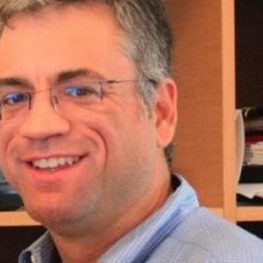FDA Places Partial Clinical Hold on Bluebird Bio Sickle Cell Gene Therapy Clinical Program
December 20, 2021
The U.S. Food and Drug Administration has placed a partial temporary suspension on Bluebird Bio’s clinical program for lovotibeglogene autotemcel gene therapy for sickle cell disease for patients under the age of 18.

Photo: Richard Colvin, chief medical officer of Bluebird Bio
The partial, temporary suspension relates to an ongoing investigation by Bluebird Bio into an adolescent patient with persistent, non-transfusion-dependent anemia following treatment with lovo-cel, now 18 months post-treatment. The company said the patient is clinically well and there is no evidence of malignancy or clonal predominance.
Enrollment and dosing for patients 18 and older living with SCD in the HGB-206, HGB-210 and LTF-307 clinical studies, as well as follow up for treated patients of all ages in all studies are continuing as planned.
“The safety of patients treated with our gene therapies is always our top priority,” said Richard Colvin, chief medical officer of Bluebird Bio. “Consistent with the FDA’s direction, we have paused enrollment and treatment of patients younger than 18 in our SCD clinical program, and we will continue to work collaboratively with the FDA to understand and address their concerns. While the partial hold is in place, we intend to continue planned follow-up on previously treated patients from HGB-206 and HGB-210 and plan to enroll and treat new adult patients with lovo-cel through study HGB-210 to further characterize the efficacy and safety of lovo-cel for patients with SCD and to continue to advance the field of gene therapy.”
Consistent with the FDA’s clinical hold procedures, Bluebird anticipates receiving written questions from the agency in early 2022 and said it will work quickly to respond in order to resolve the partial hold. The company is evaluating what impact, if any, the partial clinical hold may have on first quarter 2023 projected timing for the lovo-cel biologics license application submission.
Bluebird said it has treated all patients in HGB-206 Group C who will form the primary basis of efficacy for approval, with the demonstration of analytical comparability and validation of its commercial manufacturing process as the key remaining actions prior to submission of the planned BLA.
Sickle cell disease (SCD) is a serious, progressive and debilitating genetic disease caused by a mutation in the β-globin gene that leads to the production of abnormal sickle hemoglobin, causing red blood cells to become sickled and fragile, resulting in chronic hemolytic anemia, vasculopathy and painful vaso-occlusive events. For adults and children living with SCD, this means unpredictable episodes of excruciating pain due to vaso-occlusion as well as other acute complications—such as acute chest syndrome, stroke, and infections, which can contribute to early mortality in these patients.
lovotibeglogene autotemcel (lovo-cel) gene therapy is an investigational one-time treatment being studied for sickle cell disease (SCD), that is designed to add functional copies of a modified form of the β-globin gene (βA-T87Q-globin gene) into a patient’s own hematopoietic (blood) stem cells (HSCs). Once patients have the βA-T87Q-globin gene, their red blood cells (RBCs) can produce anti-sickling hemoglobin (HbAT87Q) that decreases the proportion of HbS, with the goal of reducing sickled RBCs, hemolysis, and other complications.
Author: Rare Daily Staff

Stay Connected
Sign up for updates straight to your inbox.
